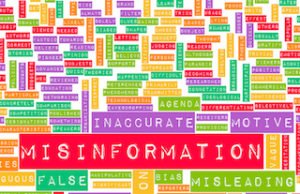If client trust is the nutrient that builds healthy financial-services careers, then conflicts of interest are the poison that kills them. Financial manufacturers have given lip service to this truism for decades, as have distributors. But the profits that come from conflicts are hard to deny in practice. However, with the fiduciary standard looming on the horizon for securities and insurance producers, advisors will be under greater pressure to better manage their conflicts — or put their careers in jeopardy.
Scare mongering, you say? Then consider these four points:
First, in October 2013, FINRA released its Report on Conflicts of Interest based on a survey of firm and representative conflict-management best practices. The report reviewed three types of systems the industry uses to minimize conflict: enterprise oriented, product manufacturing and distribution driven, and compensation related. Although FINRA said companies and advisors had made progress on all three fronts, it also called on them to do more. It even made a not-so-veiled threat: “If firms make inadequate progress generally,” it said, “FINRA will evaluate whether conflicts-focused rulemaking is necessary to enhance investor protection.”
Second, the SEC announced its enforcement unit will be focusing on conflicts of interest in 2015. According to newsreports, the agency will spotlight several key issues, including undisclosed outside business activities and undisclosed bias toward proprietary products and investments. “Only through complete and timely disclosure can advisors, as fiduciaries, discharge their obligation to put their clients’ and investors’ interests ahead of their own,” said Enforcement Asset Management Unit Co-Chief Julie Riewe at an industry event.
Third, the Obama Administration recently gave the Department of Labor the permission to go ahead with rewriting its fiduciary standard for financial advisors involved with ERISA-governed retirement plans. Experts say this will likely have a big impact on commissions paid when clients roll over their 401(k) or other pension assets into an IRA upon retiring or switching jobs. In justifying his decision, the President said that “conflicted advice” generates returns that are about 1 percentage point lower each year. Since IRA assets currently amount to $1.7 trillion, the aggregate annual cost of conflicted advice is roughly $17 billion per year. Although some have disputed this figure, the President’s fiduciary advocacy has put industry conflicts on stark display, increasing pressure on companies and advisors to respond.
Fourth, financial journalists are writing more frequently about the industry’s dueling standards of care (suitability vs. fiduciary) and about how consumers can avoid inherent conflicts in each model. For example, a Wall Street Journalarticle entitled, “New Financial Advisor? Check Out Fees and Conflicts,” cautions people to probe an advisor’s fiduciary status at the outset. The reporter, Peter Finch, cautioned readers to probe hard for underlying conflicts of interests. For example, he said an advisor might push mortgage refinancing in order to make more funds available for investing, not to save his client money. Or an advisor might recommend a particular brokerage firm for transactions in order to get referrals to new clients.
Are your ready for the new environment?
Put the pieces together and the conclusion is hard to deny. Consumers will soon prefer working with advisors who bring less conflict baggage. And financial professionals will feel greater pressure to become fiduciaries and to be more transparent about their conflicts. Are you ready for this new environment? If not, you’ll have to do two things rather quickly. First, become more aware of the potential conflicts in your business model and second, become more skillful at balancing and disclosing those competing interests.
For example, if you hold a securities license, you’ll need to become more careful about managing the following issues:
• Engaging in outside business activities that give you an incentive to recommend a transaction that benefits you, but hurts your client.
• Offering or accepting a gift or entertainment that colors your business judgment.
• Advising a client to purchase a proprietary or preferred third-party product because your compensation is higher for such products, even though net returns might suffer.
• Pushing mutual funds over individual stocks because you get paid more to sell mutual funds.
• Avoiding index or exchange-traded funds because they pay you less than fully loaded products, even though studies suggest such vehicles are more affordable and tax efficient.
• Selling securities your firm is underwriting to people for whom those securities are unsuitable.
• Favoring equity investments over fixed-income products because product manufacturers generate more fees from the former and are willing to provide higher sales incentives, even though a client’s risk tolerance suggests a need for the latter.
• Giving greater emphasis to a certain product type because you are nearing a compensation-plan threshold that will increase your total payout, again with no consideration of client suitability.
Advisors with insurance licenses
Advisors with insurance licenses face many of the same conflicts, as well as others such as:
• Agreeing to become the designated beneficiary of an insurance policy you sold to a client, even though you have no insurable interest in the person’s life.
• Becoming a collateral assignee of a policy or contract owned by anyone other than a close family member.
• Becoming a trustee of a trust that owns a policy insuring someone other than your close family member.
• Holding power of attorney over a client’s property, especially if it includes a life insurance policy or annuity you sold the person.
• Lending money to a customer or borrowing money from a customer.
Questions to ponder
As for balancing and disclosing conflicts, always force yourself to consider the client impact. When pondering an action that appears to benefit you more than the client, always ask yourself these questions:
• How will the client feel if he finds out you benefited from the transaction at his expense? Will he feel victimized? Might he pursue legal remedies?
• What will self-dealing do to your perceived credibility? By favoring your own interests, will you permanently damage your ability to serve the client?
• Will your action pose errors-and-omissions risk to your business? Are you adequately insured against such risks?
• Finally, will an aggrieved client take her complaint online, thereby harming your professional reputation in perpetuity?
Hopefully, pondering these questions will persuade you to more effectively handle your conflicts of interest. Equally important is fully disclosing them. This is a key SEC requirement for investment advisors, who typically publish conflict disclosures on their web sites. But SEC-registered advisors shouldn’t just provide web boilerplate and call it a day. They should also discuss conflicts with clients to make sure they understand their fiduciary commitment.
For advisors with insurance licenses, perhaps it’s time to adopt a fiduciary mindset of their own, even though it is not yet required, and to increase disclosures and client discussions accordingly.
Bottom line, with heightened focus on conflicts of interest, why keep giving prospects a reason to mistrust you? At the end of the day, if you want to build a healthy financial-services business that attracts new clients and retains existing ones, pills that poison trust are bad medicine, indeed.
For more information on ethical sales practices, please visit the National Ethics Association’sEthics Center. For more information on affordable errors and omissions insurance for low-risk financial advisors, visit E&OforLess.com.













